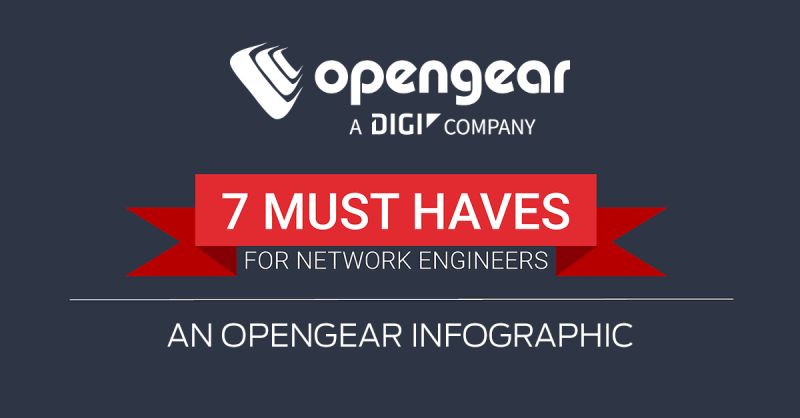Next in our Road to Resilience webinar series is “The New Age of NetOps”, hosted by Roy Chua, Principal at AvidThink, and joining him was Jason Gooley, Technical Evangelist at CISCO, AJ Murray, Senior Network Engineer at Red River and Dan Baxter, Senior Sales Engineer at Opengear. The panel discussed the changing responsibilities of the network engineer and the role that NetOps has played in this evolution. Below are some of the key takeaways:
The Role of NetOps in Modern Businesses
The road to resiliency is a difficult path to tread, with networks becoming more complex and harder to manage. A key approach to simplifying network management is adopting NetOps, which Jason succinctly described as the streamlining of operations via value-adding technologies such as automation, with AJ concurring and stating that it’s the marriage of the technology with the business.
Roy gave an overview of the research study by Opengear of network engineers, architects and managers, which found that NetOps is rising in popularity, with 87% of organisations acknowledging increased investment in the past two years. NetOps however has implications for both network and business culture, and delving into these trends is crucial for organisations to truly understand how the approach differs.
The Changing Responsibilities of the Network Engineer
Network engineers have historically been viewed as the saviours when something goes wrong in an organisation. The culture around saving the day means that one professional is viewed as the keeper of the keys and steps in when a fault occurs. Roy asked the panel about how NetOps is changing this culture. AJ said that NetOps is enabling more engineers to be daily heroes by saving time for the organisation with automation, and Dan agreed, stating the benefits of removing the dependency on a single hero and covering why this allows others to apply their skills. One such example of automation is management of devices to ensure the manual method of logging in to each device can be avoided. The panel agreed that there’s now more opportunities to save the day in more ways for more people.
Much of the fear around increased use of automation under a NetOps approach is the reduction of responsibility for network engineers in this new culture. If everything is automated, Roy asked the panel as to whether they are a redundant entity. They collectively agreed that this isn’t the case. Dan said that automation actually frees up the time for network engineers to reskill or upskill in other areas of the business, and focus on critical thinking areas where they are better suited. Virtualisation and the move to the cloud previously opened up new job opportunities for skilled professionals, and automation will provide the same in the networking world.
Starting Small in the Automation Journey
Jason also explained how many engineers are also fearful of NetOps and automation due to a potential lack of understanding of this new approach. Jason said that starting small is the key here, even if it’s something as simple as using a Raspberry Pi at home for them to gain experience in that environment, and will help them make the shift from network engineers to network developers. This also plays into the development of new skills for those in the industry.
Relying on external support such as the technical expertise of Opengear and the helpful engineer community will be key for professionals when adopting NetOps. Dan explained that for young network engineers entering the business, collaboration will be crucial, and the onus will be on leaders to ensure they learn from every aspect of the organisation. The panel agreed that a NetOps culture is more than just integration of new solutions; it’s a mindset among the professionals that work within it. Taking these considerations into account will ensure effective integration of NetOps and enable a smoother journey on the road to resilience.
Missed the live stream of the webinar? Be sure to check out the video here for the full rundown.

